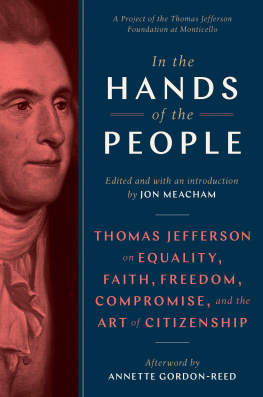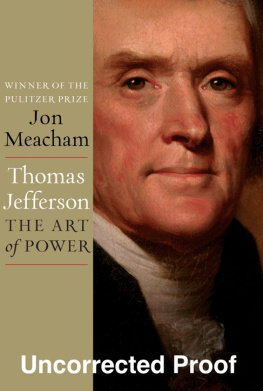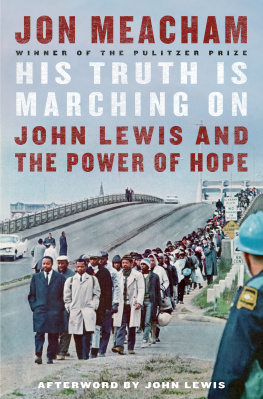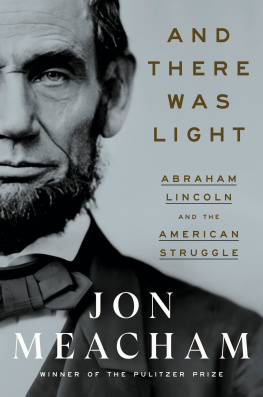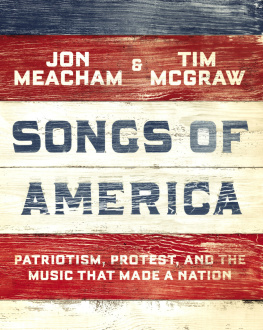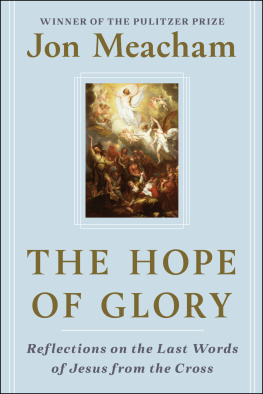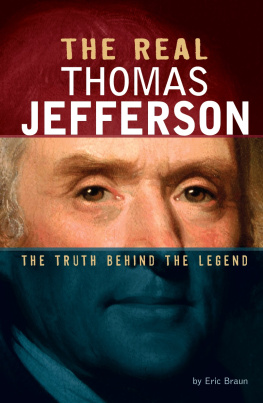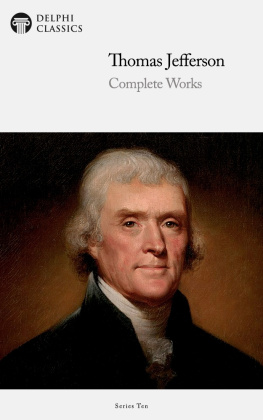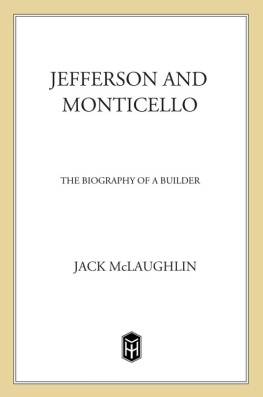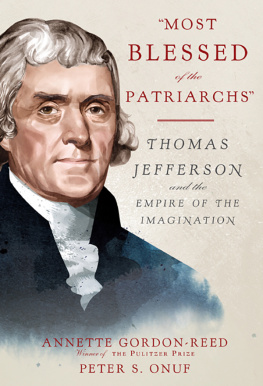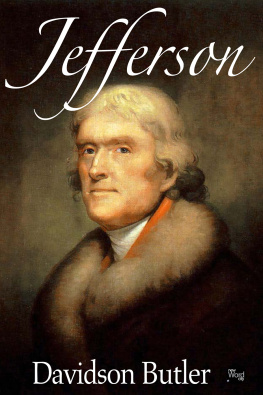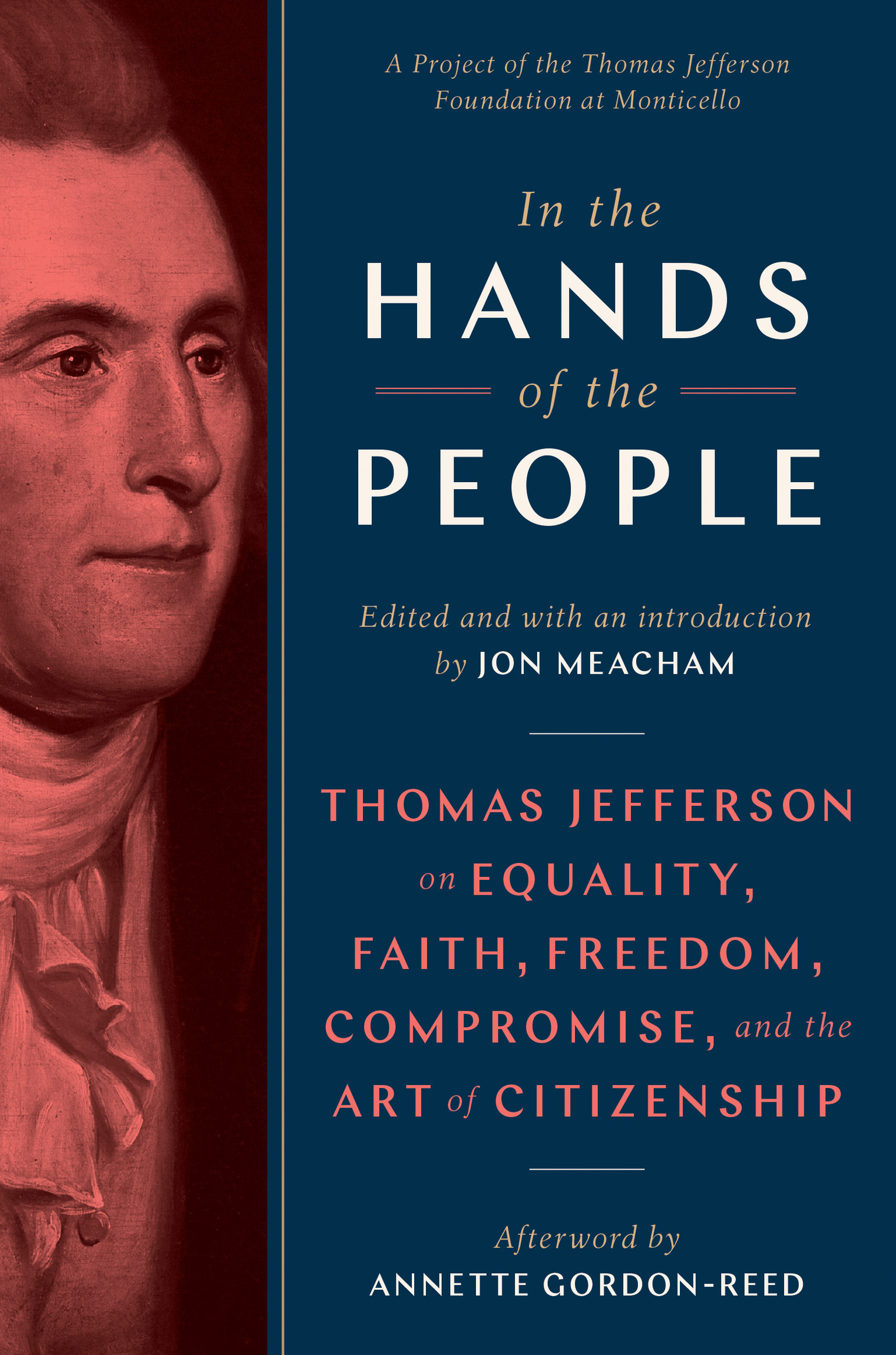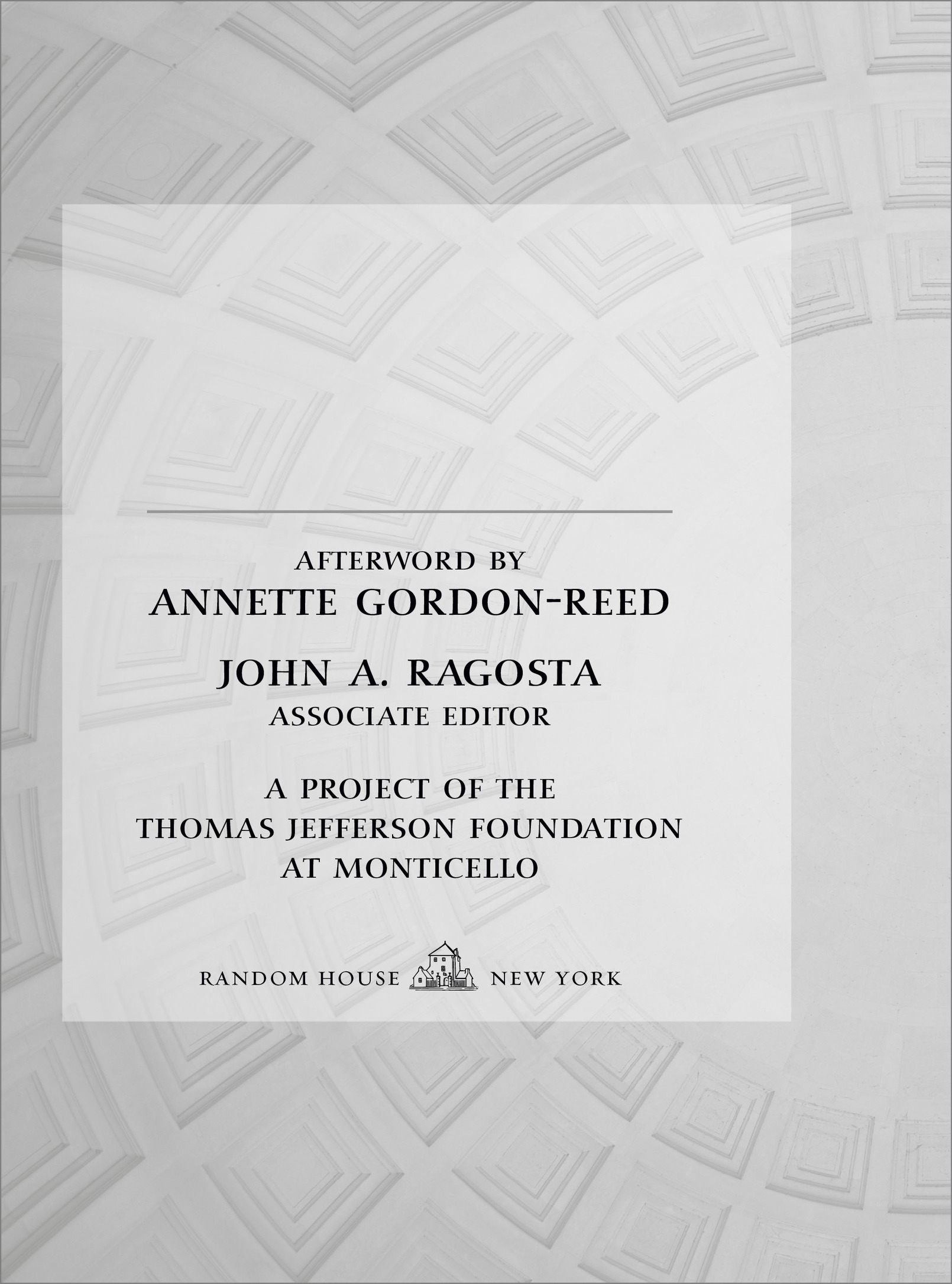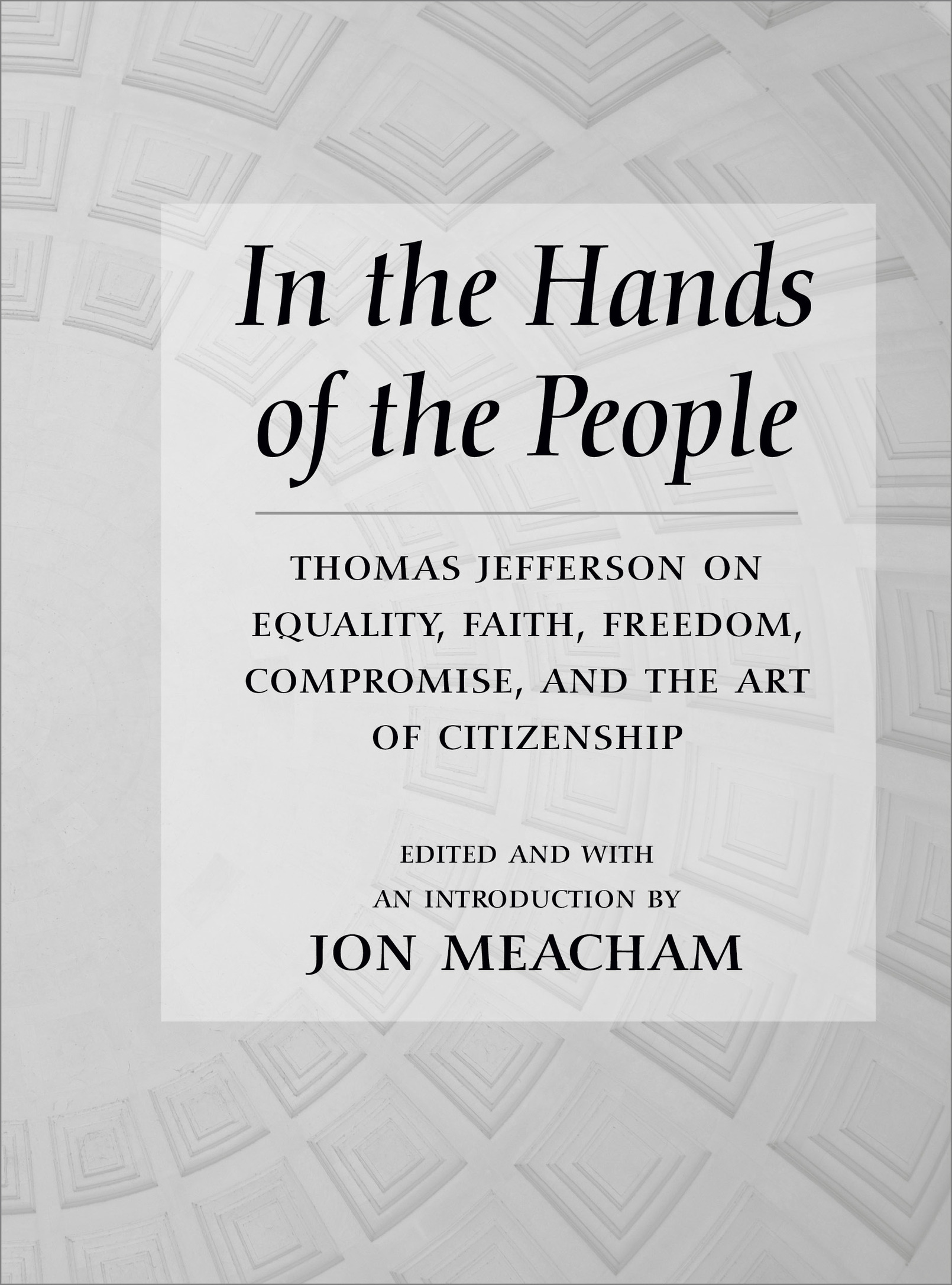All rights reserved.
Published in the United States by Random House, an imprint and division of Penguin Random House LLC, New York.
R ANDOM H OUSE and the H OUSE colophon are registered trademarks of Penguin Random House LLC.
Title-page photograph: interior of dome of the Jefferson Memorial, iStock/Douglas Rissing
Cover image: Huntington Library, Art Museum, and Botanical Gardens/Bridgeman Images
Introduction
TO ENLIGHTEN THE PEOPLE
Every government degenerates when trusted to the rulers of the people alone. The people themselves are its only safe depositories.
T HOMAS J EFFERSON
John Adams was, as usual, skeptical to the point of gloominess. In the long winter of his life, the diminutive, stubborn, and intensely patriotic former president wondered aloud about the vagaries of history, openly worrying that posterity could never fully capture the true story of the birth of the United States. Who shall write the history of the American Revolution? Adams wrote to Thomas Jefferson in the summer of 1815, a year shy of the fortieth anniversary of the Declaration of Independence. Who can write it? Who will ever be able to write it?
Adamss anxiety was well founded, for he knew that detail and nuance tended to fall victim to the ravages of time and to the narrative need for a beginning, middle, and end of a common story. There is only so much room on a stage, which is among the reasons why heroes are generally singular figures. Even supporting roles are few and far between. Such, Adams believed, would be the fate, and the casting, of the story of America. The history of our Revolution will be one continued lie from one end to the other, Adams had lamented in a letter to his friend Benjamin Rush as early as 1790, when Adams was serving as the first vice president of the United States. The essence of the whole will be that Dr. Franklins electrical rod smote the Earth and out sprung General Washington. That Franklin electrified him with his rodand thence forward these two conducted all the policy, negotiations, legislation, and war.
Jefferson was characteristically more sanguine than Adams. I like the dreams of the future, Jefferson once remarked, better than the history of the past. Adams and Jeffersons exchange about history came as they restored their friendship after the politics of the 1790s had driven them apart. A letter from you calls up recollections very dear to my mind, Jefferson wrote Adams on Tuesday, January 21, 1812, in reply to an initial note. It carries me back to the times when, beset with difficulties and dangers, we were fellow laborers in the same cause, struggling for what is most valuable to man, his right of self-government. Laboring always at the same oar, with some wave ever ahead threatening to overwhelm us and yet passing harmless under our bark we knew not how, we rode through the storm with heart and hand, and made a happy port.
It had been a close-run thing, and Jefferson shared Adamss doubt that subsequent generations would be able to appreciate the tumult and the tension of the war for independence. On the subject of the history of the American Revolution, Jefferson replied to Adams, you ask Who shall write it? who can write it? and who ever will be able to write it? Nobody; except merely its external facts. All its councils, designs and discussions, having been conducted by Congress with closed doors, and no member, as far as I know, having even made notes of them. These, which are the life and soul of history, must forever be unknown.
What could be known, however, were the broad lessons of the cataclysmic events of the American Revolution. To Jefferson the details of the struggle against Great Britain were less significant than its meaninga meaning captured in the words he wrote in the last days of June 1776: We hold these truths to be self-evident, that all men are created equal, that they are endowed by their Creator with certain unalienable rights, that among these are life, liberty and the pursuit of happiness [and] that to secure these rights, governments are instituted among men, deriving their just powers from the consent of the governed.
The consent of the governed: How, exactly, would the consent of the peoplethe essence of free governmentbe formed, expressed, understood, manifested? In Jeffersons mind, the workings of the engine of liberty rested with the people. The art of citizenship depended on the extent to which the people could be relied upon to use experience and reason to move the nation forward through the vagaries of time and chance.
History, he wrote in his Notes on the State of Virginia, by apprising [the people] of the past, will enable them to judge of the future; it will avail them of the experience of other times and other nations; it will qualify them as judges of the actions and designs of men; it will enable them to know ambition under every guise it may assume; and knowing it, to defeat its views. The fate of freedomthe fate of everythinglay, Jefferson believed, in the broad populace.
His vision was one of hope. Wherever the people are well informed, Jefferson wrote in 1789, they can be trusted with their own government, [and] whenever things get so far wrong as to attract their notice, they may be relied on to set them to rights.
Which brings us to the book you are reading now. In an hour of twenty-first-century division and partisanship, of declining trust in institutions and of widespread skepticism about the long-term viability of the American experiment, it is instructive to return to first principles. Not, to be sure, as an exercise in nostalgia or as a flight from the realities of our own time, but as an honest effort to see, as Jefferson wrote, what history may be able to tell us about the role of the people in the present and the future.
And by us, I do mean us. This project, undertaken by the Thomas Jefferson Foundation, is less about Jefferson and his complexities and more about the American people and our complexities. Leadershipthe ways and means of the few who hold positions of elected powertends to dominate our national conversation and consume our national energy. The point of this book, though, and of the conversations it aims to inspire, is to explore citizenship and the role of the peoplethe ways and means of how we can form dispositions of heart and mind that find expression in the public life of our nation.
Why turn to the slave-owning Thomas Jefferson for counsel on how to live in the diverse world of a global age? The author of the Declaration of Independence and of the Virginia Statute for Religious Freedom was a patriarchal white supremacist; the third president of the United States and the founder of the University of Virginia had little interest in securing the rights of women and played a critical role in the dispossession of native peoples from their lands.

